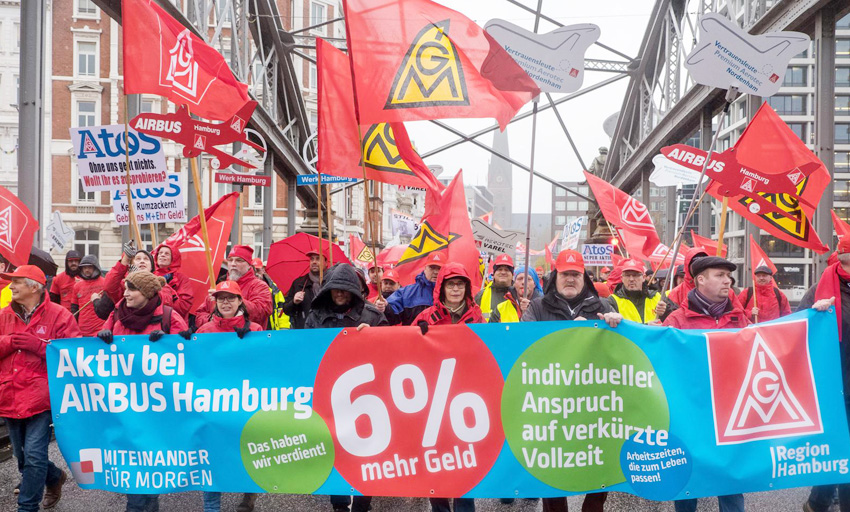
INDUSTRIAL production in the eurozone plummeted dramatically in December with factory output falling by 4.1 per cent in the final month of the year compared with the same month a year earlier, according to figures published by Eurostat yesterday.
Germany was among the states which suffered the most, as production dropped by 7.2 per cent. Italy was close behind on a 4.3 per cent decrease while France was down 3.2 per cent.
The eurozone/euro area or EA19 represents member states that use the single currency the euro while the EU27 includes all member countries of the bloc.
‘In December 2019 compared with December 2018, industrial production decreased by 4.1 per cent in the euro area and by 3.9 per cent in the EU27,’ it said.
Among main industrial groups, the production of capital goods fell the most, down 6.7 per cent year-on-year in December.
It was followed by intermediate goods (5.5 per cent), energy (2.3 per cent) and durable consumer goods (1.4 percent), while production of non-durable consumer goods rose 1.3 per cent.
Among member states, the highest annual increase was seen in Malta, up 7.6 per cent, followed by Portugal (up 3.9 per cent), and Poland (up 1.3 per cent) in December 2019.
‘The largest decreases in industrial production were registered in Estonia (-9.9 per cent), Romania (-8.9 per cent) and Germany (-7.2 per cent),’ Eurostat said.
The data released by the EU’s statistical office comes as economists revised down their predictions for eurozone economic growth in the current quarter.
Jessica Hinds at Capital Economics forecast the eurozone recession to continue in the coming months.
She warned the coronavirus outbreak which has killed more than 1,350 people will exacerbate Europe’s industry problems.
Factories in the Chinese city of Wuhan, the epicentre of the deadly sickness, have been put on lockdown meaning that European car production can no longer get the parts and have also been hit.
Hyundai, number-five in global car sales, has been forced to close all its factories at home in Korea for lack of key components. Volkswagen, Toyota, General Motors and Tesla have all downed tools at their Chinese plants, as has Apple’s iPhone supplier Foxconn.
With German manufacturing already in free fall, falling 8.4% in a year, this will hit car manufacture hard.